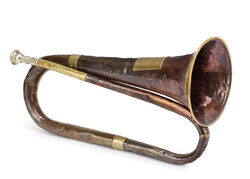“Pitched upon for their leader and herald”
One, published in the Boston Evening-Post and quoted here, said that embattled importer Henry Barnes had promised free alcohol to his supporters, including young men who worked for him. They all gathered at Simon Howe’s house, and then a few went out looking for trouble.
The other was written on 25 July, 250 years ago today, and I started quoting it yesterday. Its writer, “An Honest Ploughjogger,” said the trouble started because the local Sons of Liberty gathered at Alpheus Woods’s house in order to destroy Barnes’s property and possibly him.
Both sides of the political divide therefore felt, or at least told the world that they felt, that the other side was preparing for violence, so they were justified in taking steps to defend themselves. Which is a lot like the larger political conflict in Massachusetts.
The “Ploughjogger” letter stated:
The drum beating very briskly, and the mob alias sons of liberty, collecting together, induced those persons to tarry at Mr. How’s to see the event; and about 40 of the said mob being met at said Woods with their weapons of death, waiting for orders; [but?] it seems one William Benson a negro who was pitched upon for their leader and herald being a fellow of more sense than the rest of them, did not come among them,…Hold on—there’s a familiar name! Someone I’ve been tracking for years, in fact.
A man of African heritage named William Benson (1732-1790) was the son of Nero Benson (d. 1757) and the father of Abel Benson (1766-1843). Nero was enslaved to the Rev. John Swift of Framingham until that minister died in 1745 and then to his son-in-law in Sudbury, Dr. Ebenezer Roby. Abel grew up free in the Framingham vicinity and served in the Continental Army starting in 1781. Both grandfather and grandson played the trumpet as part of their military duties.
Locals in Framingham and Needham recalled that a black trumpeter helped to rouse local militia early in the morning of 19 Apr 1775. In 1908 a genealogist identified that trumpeter as Nero Benson, but he’d been dead for almost two decades by then. The identification then switched to Abel Benson. But no one had reported that trumpeter was only nine years old, and Abel didn’t mention military service in 1775 when he applied for a Revolutionary War pension.
I’ve posited that William, the biological link between Nero and Abel, was that trumpeter. He could have learned the instrument from his father and passed it on to his son, I suggested. He was in his early forties, of militia age, in 1775.
Now in this letter from Marlborough we have a reference to “one William Benson a negro” whom at least forty young men of the town supposedly saw as a “leader and herald”—and traditionally a herald blows a trumpet.
William Benson was born in the Swift household in Framingham. After the minister died, he probably went west with his mother to the household of another son-in-law, Joseph Collins of Southborough. By 1762 William Benson’s name appeared on the records of multiple towns in that area. He and his wife Sarah Perry, a teenager from Sudbury, were warned out of Shrewsbury. Collins tried to force Benson back into slavery, with their dispute settled in Benson’s favor by a court case in 1764.
William and Sarah Benson had their first child, Kate, in Framingham in 1763. (Kate grew up to marry Peter Salem, then going by the name Salem Middlesex.) Their subsequent children, including Abel, aren’t on the Framingham records; that might have been an oversight, but the family was probably moving around for work.
The “Ploughjogger” letter suggests that in 1770 William Benson was in nearby Marlborough, and was seen as the sort of man who could rouse the youth into patriotic action, most likely with his trumpet. Except that Benson was wise enough to stay out of the fight between the white men at Simon Howe’s and the white men at Alpheus Woods’s.
TOMORROW: When someone pulled out a knife.



